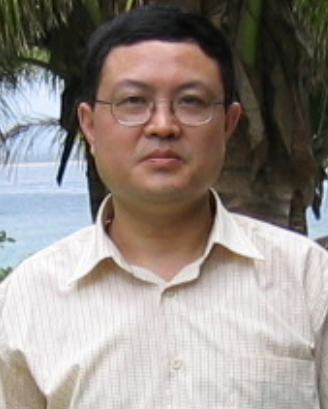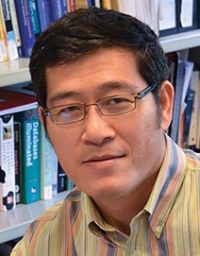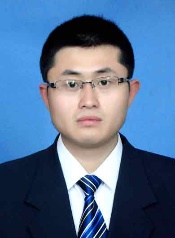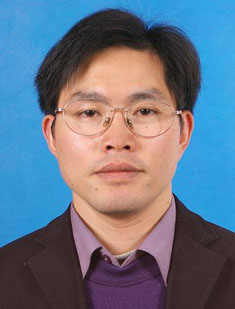
Prof. Josep M. Guerrero, Aalborg University, DenmarkIEEE FellowJosep M. Guerrero, received the B.Sc. degree in telecom engineering, M.Sc. degree in electronics engineering, and PhD degree from the Technical University of Catalonia, Barcelona, Spain. Since 2011, he has been a Full Professor with AAU Energy, Aalborg University, Denmark, where he is responsible for the Microgrid Research Program. From 2019, he became a Villum Investigator by the Villum Fonden, which supports the Center for Research on Microgrids (CROM) at Aalborg University, being Prof. Guerrero the founder and Director of the same center. In 2020, he initiated neuroscience studies and research. From 2023 to 2024 he was with the Technical University of Catalonia as an ICREA Research Professor. In 2023 he joined Huanjiang Laboratory as a director of the Center for Renewable Energy and Microgrids, Zhuji, Shaoxing, China. In 2025 he became a Distinguished Senior Researcher at the department of electrical engineering, University of Valladolid, Spain. His research interests are oriented to different microgrid frameworks like energy microgrids, hydrogen and biomass, water micronets, biological systems, seaport microgrids and electrical ships, airport microgrids and more electrical aircrafts, space microgrids and smart medical systems. Prof. Guerrero is an Associate Editor for several IEEE TRANSACTIONS. He has published more than 1,000 journal papers in the fields of microgrids and renewable energy systems, which are cited more than 120,000 times. During nine consecutive years, from 2014 to 2023, he was awarded by Clarivate Analytics as Highly Cited Researcher. |  |
Prof. Jiacun Wang, Monmouth University, AmericaIEEE Senior MemberJiacun Wang received the PhD in computer engineering from Nanjing University of Science and Technology (NJUST), China, in 1991. He is currently a Professor and Graduate Program Director of the Computer Science and Software Engineering Department at Monmouth University, West Long Branch, New Jersey, USA. From 2001 to 2004, he was a member of scientific staff with Nortel Networks in Richardson, Texas. Prior to joining Nortel, he was a research associate of the School of Computer Science, Florida International University (FIU) at Miami. Prior to joining FIU, he was an associate professor at NJUST. Dr. Wang's research interests include software engineering, discrete event systems, formal methods, machine learning, healthcare information systems, wireless networking, and real-time distributed systems. Most recently, he has been focusing his research on workflow modeling and analysis for emergency management systems. He published four books, including Formal Methods in Computer Science (CRC Press, 2019), Real-time Embedded Systems (Wiley, 2017), Finite State Based Models and Applications (CRC Press, 2012), and Timed Petri Nets: Theory and Application (Norwell, MA: Kluwer, 1998), and published more than 170 research papers in peer reviewed international journals and conferences. He is currently an Associate Editor of IEEE Transactions on Systems, Man, and Cybernetics: Systems, and IEEE/CAA Journal of Automatica Sinica. He was an Associate Editor of IEEE Transactions on Systems, Man, and Cybernetics, Part C, and has served as general chair, program chair, program co-chair, or special sessions chair for several international conferences. Dr. Wang has been a senior member of IEEE since 2000. |
Prof. Haibin Zhu, Nipissing University, CanadaIEEE FellowZhu Haibin, Ph.D., male, born in 1963, from Dongying, Shandong Province. Professor of Computer and Mathematics Department, University of Nipissing (NipissingUniversity), Canada; Director of Computer Science Program; Director of Collaborative Systems Laboratory (founder). His research Interests: Multi-agent systems, role-based systems, group performance optimization, group role assignment. |
|
| Prof. Xiaoou Li, National Polytechnic Institute in Mexico, MexicoIEEE Senior Member Xiaoou Li, IEEE Senior Member, Member of the Mexican National Academy of Sciences, Member of the Mexican National Fellowship System (Level 2).She is a member of IEEE-Wiley Publisher Editing Committee. She graduated from Applied Mathematics department of Northeastern University in 1991.She received a Ph.D. in Automatic Control Theory from Northeastern University in 1995.She was a lecturer at Northeastern University from 1995 to 1997 and a postdoctoral researcher in National Autonomy in Mexico from 1998 to 2000. Since 2000,She is a Professor of Computer Science at the Center for Research and Higher Education at the National Institute of Technology in Mexico. He was a visiting scholar at Queen's University Belfast (2006-2007) and the University of California Santa Cruz (2010) for a year. Her Research Areas is Theories of Data Analysis: Machine learning , Support vector , Z number , Lyapunove method , Fuzzy logic and Neural networks based analysis. |
Prof.Lianghua He, Tongji University, ChinaProfessor Lianghua He, Doctoral Supervisor. After earning his Ph.D. from Southeast University in 2005, he conducted postdoctoral research at Tongji University in Control Science and Engineering and remained on faculty after completing his postdoctoral fellowship in 2007. He has been honored with the Shanghai Rising-Star Program, the Ministry of Education’s New Century Talent Program, and the Young Scholar of the Chang Jiang Scholars Program. His research has consistently focused on image processing, pattern recognition, data mining, and machine learning. Before 2011, his work centered on facial image discrimination and analysis, facial expression recognition and analysis, and speech recognition. After visiting Columbia University Medical Center in the United States in 2011, he shifted his focus to the analysis and understanding of brain cognitive images (fMRI), discrimination and analysis of EEG signals, intelligent learning of deep neural network architectures, and machine learning for small-sample problems in big data contexts. He has led multiple national and provincial-level research projects, including those funded by the National Natural Science Foundation of China (Youth Program, General Program), the Ministry of Education's Doctoral Fund, the Ministry of Education's Key Project, and the Shanghai Key Basic Research Project. Additionally, as a key contributor, he participated in major initiatives such as the Ministry of Science and Technology's 973 Program, International Key Cooperation Projects, the 863 Program, and the National Development and Reform Commission's Special Projects. He has published over 50 papers in core domestic and international journals. His accolades include two First Prizes and one Second Prize for Science and Technology Progress from the Ministry of Education, one Second Prize for Natural Science from the Ministry of Education, and one First Prize for Technological Invention from Shanghai. He has applied for 8 patents, been granted 12 patents, obtained 7 software copyrights, and passed two ministerial-level appraisals by the Ministry of Education. |




